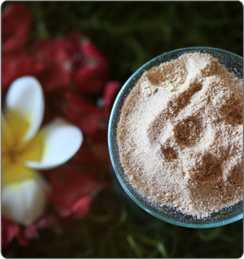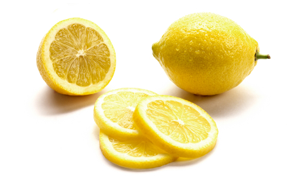Confused About Cleansing?
Do I Need a Colon Cleanse? Some of the most perplexing questions people have about internal cleansing surround knowing which kind of cleanse to use and why it is important to cleanse the colon in the first place. There are many different options available today: colonic irrigation, oxygen cleanses, therapeutic clays, diet-based cleanses, and fiber cleanses. It’s important to know which ones work and why they may or may not be good for your health.
Oxygen Cleanse
Oxygen cleanses use the natural power of oxygen to dissolve fecal matter that may be stubbornly stuck inside the colon. This can lead to diarrhea and loose stool, which create potential problems of their own.

Bentonite clay
Colonics or Colonic Irrigation
Colonic irrigation is basically a clinically delivered, deep enema. That is, a professional inserts an instrument into the rectum and flushes the entire colon with fluid. Reports on this cleansing approach are mixed, but the process typically takes several visits and can be somewhat expensive. Medical professionals worry about possible adverse events such as the introduction to the colon of harmful bacteria, the perforation of colon by the inserted instrument, possible depletion of electrolytes, and allergic reactions to the latex or plastic used or to the lubricant jelly.
Clay Cleansers (Bentonite Clay)
Therapeutic clays, especially bentonite, have been used to help cleanse the body. These are naturally occurring clays that, when ingested, absorb toxins and escort them out of the body. Bentonite clay, in particular, carries little risk for adverse reaction, but it may absorb certain drugs, and large doses may cause a strong laxative effect.
Some colon cleanses work based on certain foods that you are supposed to consume or avoid. One popular cleanse instructs the user to consume only lemon juice, cayenne pepper, maple syrup, and a salt-water mixture.
Other food-based cleanses, such as fasting and juice fasts, are thought to help the body’s detoxification system by letting it use biological energy that would otherwise go toward digestion. Unfortunately, strict or severe food-based cleanses can be overly hard on the digestive system, and may require professional guidance to ensure it is completed properly and to guard against sudden urges to binge on foods that have been excluded from the fast.

Fiber Cleansers
Finally, fiber-based cleanses utilize the natural colon-cleaning properties of plant-based dietary fiber. Found in soluble and insoluble forms, dietary fiber bulks up as it travels through the digestive tract, sweeping the intestines clean along its way. Additionally, certain fiber feeds the friendly bacteria in the colon, promoting overall immune function and digestive wellness.
Colon Cleansing for Colon Health
With all these options available today, it’s fairly clear that colon cleansing is an important subject. But why? Most people think of colon cleansing in conjunction with constipation, something that most people (if not all) will experience at some point in their lives.
For some, however, constipation is a daily frustrating and painful occurrence, and all too often these people turn to laxatives for help. Most of the laxatives that people use with such regularity are bowel stimulants that work by irritating the walls of the intestinal tract, causing increased peristalsis—the movement of the intestinal walls—as the body attempts to expel the laxative.
Unfortunately, with continued use, this can result in poor intestinal muscle tone, faulty peristalsis, and even further dependence on laxatives. And not only can continued reliance on laxatives lead to the inability to move the bowels without their aid, but also to the depletion of vital electrolytes such as potassium.
Colon cleansing addresses this and other health issues from a healthier angle. In fact, some kinds of cleansing, such as fiber-based approaches, can exert strong health preserving effects beyond colon health, such as supporting a healthy heart and weight.
Which cleanse is right for you?
Only you, with a physician’s help as necessary, can decide. But perhaps it is helpful to consider this facet: of all the cleansing options highlighted above, only the fiber-based cleanse is one that is truly natural to the human body. In fact, an adequate intake of dietary fiber is seen as an integral part of a healthy diet. An unhealthy digestive system is not caused by a deficiency of clay, colonic irrigation, oxygen powder, or juice. It may be caused, however, by a deficiency of dietary fiber. Certainly something to consider!
1 Handley, D.V., Rieger, N. A., & Rodda, D. J. (2004). Rectal perforation from colonic irrigation administered by alternative practitioners. Med. J. Aust. 181(10): 575–576.
2 Centers for Disease Control (CDC) (1981). Amebiasis associated with colonic irrigation—Colorado. MMWR Morb. Mortal. Wkly. Rep. 30 (9): 101–2.
3 Istre, G.R., Kreiss, K., Hopkins, R.S., et al. (1982). An outbreak of amebiasis spread by colonic irrigation at a chiropractic clinic. New England Journal of Medicine. 307 (6): 339–342.
4 Tennen, M. (2007). The dangers of colon cleansing.HealthAtoZ.com. Retrieved February 27, 2011 from http://www.myoptumhealth.com/portal/Information/item/The+Dangers+of+Colon+Cleansing?archiveChannel=Home%2FArticle&clicked=true
5 Richards, D. G., McMillin, D. L., Mein, E. A., & Nelson, C. D. (n.d.). Colonic irrigations: A review of the historical controversy and the potential for adverse effects. Retrieved February 25, 2011 from http://www.i-act.org/Resources/Colonic_Irrigation_Historical_Reviewa.pdf
6Hendler, S. S. [Editor], & Rorvik, D. [Editor]. (2001). PDR for Nutritional Supplements. (2nd ed.). Montvale, NJ: Thomson Healthcare, 65-66.
7 Gulf war syndrome (n.d.). Life Extension Foundation.. Retrieved February 27, 2011
8 Fiber, Dietary. (n.d.). The World's Healthiest Foods. Retrieved February 27, 2011, from http://www.whfoods.com/genpage.php?tname=nutrient&dbid=59
9 Laxative Abuse. (2010). Drugs, 70(12), 1487-1503. Retrieved from EBSCOhost.

